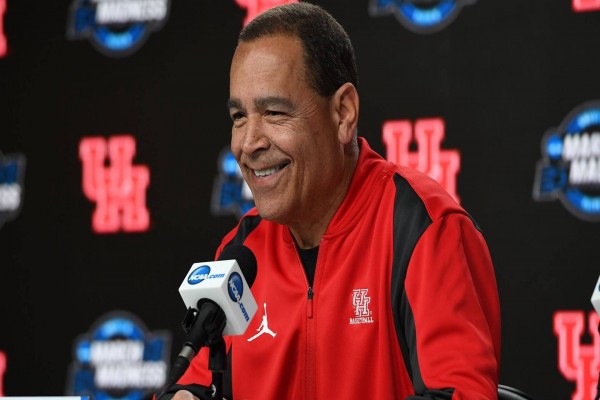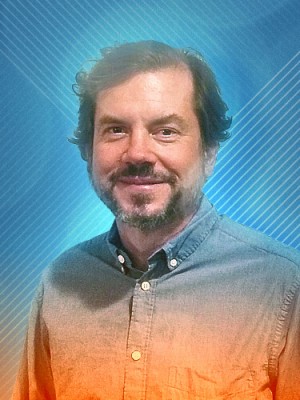Each Day is Another Day to Improve
Coast To Coast : Each Day is Another Day to Improve

In 30 seasons as a Division I head coach, Kelvin Sampson has built a Hall of Fame resume, producing championship seasons and NCAA tournament appearances at four schools and leading two programs to the Final Four.
Perhaps his best coaching effort occurred just last year. Despite losing two of his best players to injury in the first half of the season, Sampson directed the Cougars to American Athletic Conference regular season and tournament championships and the Elite 8 of the NCAA tournament.
While outside observers dismissed Houston as a national title contender when first Tramon Mark and then Marcus Sasser suffered those injuries, the team thrived because of its fierce defense, relentless rebounding and efficient offense - staples of Sampson’s teams throughout his career. The program’s second 30-win season in the last four years revealed seasoned depth. The next man available rose to the challenge, sustaining the excellence Sampson built from the ground floor over the last nine years in Houston.
The seeds for the success were planted in tiny Pembroke, NC, where Sampson grew up the son of a high school coaching legend. He learned the value of depth early in his own career.
The 1989-90 season was Sampson’s third at Washington State. After a successful tenure at Montana Tech, he’d been hired to help Washington State compete with Pac-10 heavyweights UCLA, Oregon State and Arizona.
An early season victory over Southern Cal and narrow defeat to UCLA gave Sampson hope his program was trending upward. Then disaster hit. His two best players suffered season-ending injuries. Washington State closed the season on an 18-game losing streak.
“We couldn’t absorb those losses,” he said.
That two-month nightmare could have wrecked his fledgling career. Instead, two years later Sampson guided Washington State to its first 20-win season in a decade. And two years after that, he led the Cougars to their first NCAA tournament berth in 11 seasons.
He carries that losing season with him.
“It’s not who I am but part of where I came from,” Sampson said. “
The 31-year-old Kelvin Sampson admits he paid too much attention to the media, the outside noise, in those early days.
“I’d tell a younger version of myself to not worry about what others think because the only thing that matters is what’s happening on the 94 feet of hardwood every day.”
It’s a message he instills in his players on a daily basis today, for a much different reason.
Thanks to Sampson’s rebuilding efforts, Houston basketball is cool again. The players are treated like celebrities on the campus. There’s a waiting list to purchase season tickets. Every home game is a sellout. The Guy V. Lewis Development Center, the 53,000 square foot of the Cougars’ men’s and women’s basketball programs opened in 2016, putting them on even footing with the nation’s elite.
Houston is not only the unanimous favorite to win the American in its final year as a member before it joins the Big 12, but is also a popular pick to clip the nets in April. Now, wouldn’t that be something. The Final Four is being held in Houston.
But Kelvin Sampson didn’t rise to the top tier of college coaches by paying attention to what others think. He emerged from the dusty two-lane roads of rural North Carolina, overcoming segregation and overt racism, because he values and understands the daily grind required to grow and improve.
On this day, a week before the season opener, Houston is ranked in the preseason top-10 and just defeated one of college basketball’s blueblood programs in a closed door scrimmage. But the video from that scrimmage disgusted Sampson so much, he walked out of the room mid-clip. Right now, Sampson has one thing on his mind: today’s practice is going to be tough.
Lessons from his father
Ned and Eva Sampson had four children in a two-year span in the 1950s. Ned was a high school basketball coach. But in the era a coach worked on a nine-month contract. So, in the summer, to support his family, Ned worked in the tobacco market, or sold encyclopedias and life insurance.
Still, after a long, hot day trying to make sales, he showed up at the high school each evening and opened the gym so his players, many of whom were working their own summer jobs, could play basketball. Most lived miles from the school and lacked their own transportation. After the last game, Sampson loaded the players into his 1963 Ford Falcon and drove out into the country, dropping them off at home. Kelvin always tagged along with his dad.
“I can see him in his white dress shirt and slacks,” Kelvin said.
The way his father cared for his players made an indelible impact on the younger Sampson.
“Nobody had a greater influence on me,” he said.
At the 2021 Final Four, Sampson opened up about the role his father and other Lumbee Indians played in helping prevent a Ku Klux Klan rally in 1958, what’s known as the Battle of Hayes Pond.
Sampson thrived in three sports through high school but initially resisted the urge to follow in his father’s footsteps. He attended Pembroke State University (UNC-Pembroke today) and chose political science as his major. He wanted to be like another hero, Thurgood Marshall, the first African-American Supreme Court justice. Prior to his appointment, Marshall argued 32 Civil Rights cases, winning 29, including Brown v. Board of Education, the landmark case where the Supreme Court ruled segregation of public schools was unconstitutional.
His mom, a nurse at Pembroke State, nudged him toward coaching. He was a student teacher at nearby Raeford HS. The coach there happened to be another North Carolina native - Tubby Smith, who later led Kentucky to a national championship. The two men are close friends and frequent golfing companions today.
Reviving the Cougars
Sampson has won 624 games as a Division I coach. In the 26 seasons since his worst at Washington State, he’s led Oklahoma, Indiana and Houston to the NCAA tournament 18 times. When he was named head coach at Houston in 2014 - after a valuable six seasons as an NBA assistant - the Cougars had been to one NCAA tournament in the previous 21 seasons. The glory days of Olajuwon, Drexler and Phi Slama Jama in the early 1980s had faded into the archives. Now, the Cougars haven’t missed March Madness since 2017.
Dean Smith, the legendary UNC coach who held annual coaching clinics for the state’s high school coaches and also fought for equality, was an early inspiration. So was Indiana’s Bobby Knight, who Sampson coached agains in the 1987 NCAA tournament. College coaching giants John Thompson, John Chaney, George Raveling and Nolan Richardson provided examples of how to thrive with integrity at the highest level.
Sampson learned from each man, taking pieces to form his own style. The modern Cougars are the toughest team in the land. They own the paint and the backboards and force opponents to suffer and struggle to create an open shot at the basket.
Life is good. He and his wife, Karen, met at Pembroke HS and have been married more than 30 years. His son, Kellen, who played for him at Oklahoma, is his top assistant coach. His daughter, Lauren, is the basketball program’s director of external operations. Sampson spent Halloween morning with his two young grandchildren but it’s fair to say a portion of his thoughts may have been on the upcoming practice that afternoon.
“They don’t rebound like that because I ask them to,” Sampson said.
Rather, the game’s most grueling component is demanded.
Each day is another day to improve.
Sampson lives for the process.
He has a ritual prior to each Houston practice as his players line up on the floor to start stretching. He likes to walk slowly, closely up-and-down each line.
“I can smell bad body language,” he said.
When he detects a player may not be fully engaged, he starts ‘working on him.’
The traits Houston reveals each game on the court must be cultivated, gradually, daily, over time. Each season is a new book, ready to be written. Any success enjoyed in the past is irrelevant as it pertains to reaching this season’s goals. Sampson’s experience keeps his team from getting too excited for one moment or one game.
“We’re not allowed to have any bad days of practice.”



